Azerbaijan Shifts Focus To Iran For Land Corridor Amid Armenia Impasse
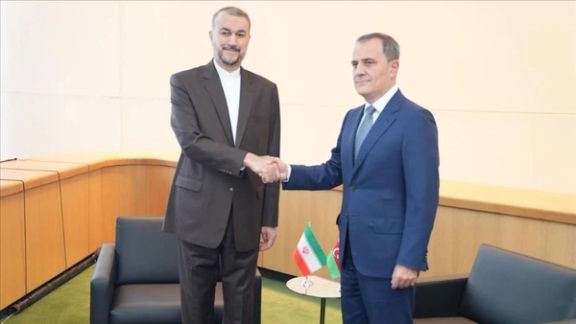
Azerbaijan Republic has redirected its efforts away from seeking a land corridor through Armenia to connect with the Azerbaijani enclave of Nakhichevan.

Azerbaijan Republic has redirected its efforts away from seeking a land corridor through Armenia to connect with the Azerbaijani enclave of Nakhichevan.
Instead, the nation is now exploring discussions with its southern neighbor, Iran, as disclosed by a senior Azerbaijani official on Wednesday.
Hikmet Hajiyev, a top foreign policy advisor to President Aliyev, told Reuters that "Azerbaijan had no plans to seize Zangezur," referring to the proposed corridor aimed at connecting mainland Azerbaijan to the Nakhichevan enclave, which shares a border with Turkey, a close ally of Baku.
He explained, "After the two sides failed to agree on its opening, the project has lost its attractiveness for us — we can do this with Iran instead."
Armenia strongly opposed the notion of such a corridor, apprehensive that it might lead to additional territorial concessions following Azerbaijan's swift military campaign resulting in the seizure of the long contested Nagorno-Karabakh region in September.
Although internationally recognized as Azerbaijani territory, Karabakh had been under the control of ethnic Armenians since the dissolution of the Soviet Union in the 1990s, prompting the mass displacement of approximately 120,000 ethnic Armenians into Armenia.
Azerbaijan had recently urged the inclusion of its long-standing request for a transport corridor through southern Armenia in the ongoing peace treaty negotiations.
Iran’s defense ministry earlier warned that it will not tolerate any changes to international borders in the region.

America First Legal, a group of conservative lawyers, announces that it has launched a probe into the activities of a pro-Iran influence network in the United States which can pose a threat to the American national security.
According to the Washington Free Beacon, the group started its investigations on October 24 about Robert Malley, the suspended US special envoy for Iran, and Ariane Tabatabai, a former associate of Malley and the current Chief of Staff for the Assistant Secretary of Defense.
Iran International’s exposé, Inside Tehran’s Soft War: How Iran Gained Influence in US Policy Centers, and its twin report by Semafor, Inside Iran’s Influence Operation, proves the existence of the “Iran Experts Network”, whereby members acted as agent provocateurs of the regime.
Referring to the Freedom of Information Act (FOIA), America First Legal has demanded that the US State Department and Pentagon provide information regarding the two officials’ alleged contacts with the Iranian regime.
The legal watchdog touches upon Tabatabai’s role “in a covert Iranian influence campaign” and her alleged lobbying for the interests of the Iranian regime in the United States, requesting that the Justice Department decide whether she can be considered a foreign agent.
America First Legal’s probe can lead to the discovery of new documents regarding Washington’s secret diplomatic relations with Tehran, especially the ones conducive to a controversial prisoner swap deal between the two countries in September 2023.
"It is of paramount importance that the truth about the role that Iranian assets may have played, and may continue to be playing, in formulating US policy be brought to light," Freebeacon quoted Reed Rubinstein, the group’s senior counselor as saying.
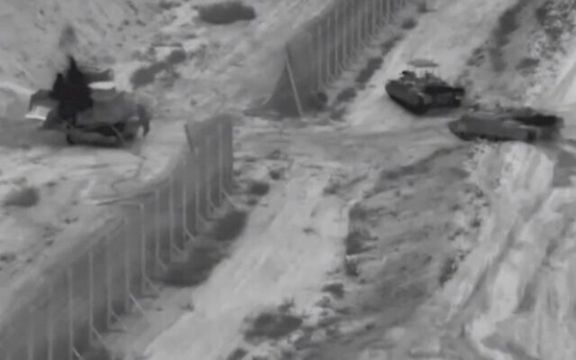
As the US ups the ante against Iran’s possible escalation of the Hamas-Israel war, regime officials renewed threats and dismissed Washington’s warning as “requests.”
During a Wednesday press conference, US President Joe Biden warned Iran against further attacks on US troops in the region after rising incidents in the last week. “My warning to the Ayatollah was that if they continue to move against those troops, we will respond, and he should be prepared,” he warned.
Since Iran-backed Hamas declared war on Israel on October 7, killing more than 1,400 and taking at least 220 hostages back into Gaza, Tehran's other proxy militias have intensified attacks on bases hosting American troops deployed in the region since 9/11. Hezbollah has increased its attacks on Israel’s northern border while proxies in Yemen and Syria have also fired missiles towards Israel.
At least 24 US troops have been injured during 10 drone or rocket attacks on bases in Iraq and three in Syria over the past week.
Biden said his warning to Iran “has nothing to do with Israel,” but it echoes similar statements by Washington that on several occasions warned Tehran to “be careful” not to do anything that leads to expanding the conflict into a larger Middle East war.
The US embassy in Kuwait has also received threats from an Iranian proxy, and downgraded all its operations to those which are deemed essential.
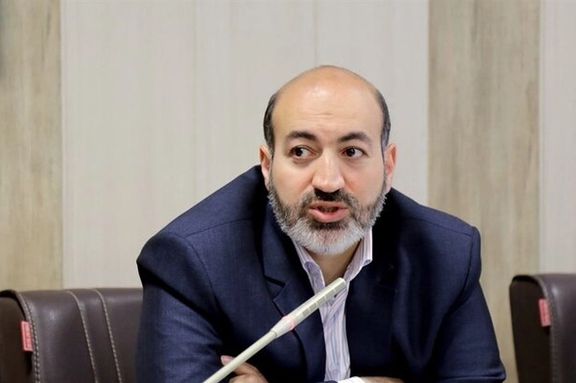
The political deputy in Iran’s presidential office, Mohammad Jamshidi, said in what IRGC-affiliated Tasnim news agency described as a reaction to Biden’s remarks, “The US messages were neither directed to the leader of the Islamic Revolution nor were they anything but requests from the Iranian side. If Biden thinks he has warned Iran, he should ask his team to show him the text of the messages.”
Earlier in the week, Iranian Foreign Minister Hossein Amir-Abdollahian said that the United States sent at least two "urgent messages" to Tehran about the simmering tensions in the Middle East. According to Amwaj Media, a media outlet with links to the regime's close circles, Washington has also communicated a potential shift in its stance regarding Iranian assets held in Qatari banks and postponed talks on nuclear issues. The message was allegedly delivered by Secretary of State Antony Blinken during his visit to Doha on October 13.
In a bid to slam the support given to Israel by the likes of the US and EU leaders, who have given their unequivocal support for its response to an attack which was the single most deadly day for Jews since the Holocaust, Hossein Salami, the Commander-in-Chief of the Revolutionary Guards, said visits by US and European officials to Israel are aimed at “resuscitation to delay the inevitable death of the Zionist regime,” a term it uses for Israel.
Salami also warned against an Israeli ground invasion which the IDF today revealed had begun in small measure with a precise infiltration overnight. He warned, “If they move on the ground, the dragon of Gaza will devour them," suggesting the might of the regime's support will be initiated in full force.
Footage released by the Israel Defense Forces (IDF) Thursday showed forces under the command of the Givati Brigade on Wednesday night carried out a targeted raid using tanks in the northern Gaza Strip, as part of the preparation of the area for the next stages of combat.
As part of the operation, the forces located and attacked many terrorists, destroyed terrorist infrastructures, anti-tank positions and carried out work to organize the area, the IDF said. The troops left the area at the end of the mission.

After the end of the UN's sanctions on Iran's missile program, Russia has announced plans to deepen military ties with the regime.
Russia's Deputy Foreign Minister Sergei Ryabkov made the announcement on Wednesday, just days after the October 18 expiration which now allows Iran to sell drones, ballistic missiles, and long-range strike technologies to its anti-Western partners and clients. Ending the sanctions also means Iran can now purchase its own technology to further develop its capabilities.
“We will develop our cooperation on a mutually beneficial basis as we did before - in full compliance with international obligations and existing regimes in this area," Ryabkov said. "Now, after the expiration of some restrictive provisions of resolution 2231, there are fewer such restrictive regimes. Naturally, we will be using this, and it should not raise any questions for anyone.”
Iran, a historical ally of Russia, is accused of supplying lethal drones to Moscow for use in Ukraine, but it has asserted its neutrality in the conflict.
Earlier, the US Treasury Department's Office of Foreign Assets Control took measures in response to the expiration of the UN arms embargo against Iran by imposing sanctions on 11 individuals, eight entities, and one vessel based in Iran, China, Hong Kong, and Venezuela.
These sanctions were applied on the grounds that these entities allegedly supported Iran's Islamic Revolutionary Guard, Ministry of Defense, and Armed Forces Logistics in their efforts related to missile and drone production and proliferation.
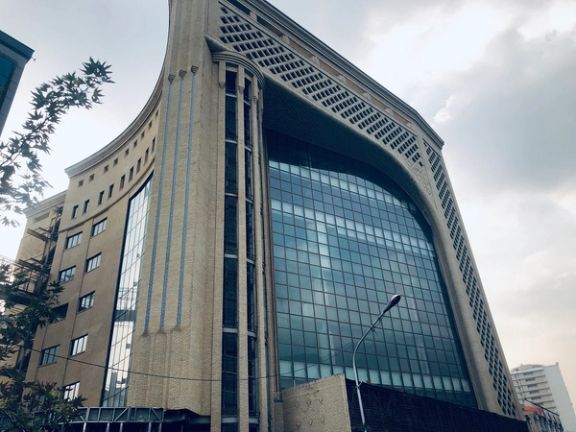
The research center of Iran’s parliament forecasts a budget deficit of $7.6 billion at the end of the Iranian calendar year (March 19, 2024), despite much higher estimates.
The report by the think tank notes that just in the first four months of the current Iranian year (starting March 21, 2023), the Iranian government’s budget deficit can be estimated as 1.02 billion.
The deficit can increase to $10 billion as the government is obligated to fund different kinds of subsidies, including the subsidy of bread.
The numbers in the think tank’s report run counter to the statistics provided earlier by Iranian officials indicating a much higher budget deficit.
Speaking about the budget imbalance, Davoud Manzour, the head of Planning and Budget Organization (PBO), had earlier confirmed that 30 percent of the expected revenues have failed to be realized in the first seven months of the year. This implies a budget deficit of $7.92 billion during that period. If this trend persists, it could culminate in a budget deficit of $13.5 billion, marking the highest budget deficit in Iran's history.
A report released by reformist daily Ham-Mihan on October 16 also forecasted a budget deficit twice as big as the figure in the previous year.
According to the parliament’s research center, the revenues expected to be derived from the sales of oil and oil products have fallen short of estimates when the budget was drafted in early 2023 and this is the main reason behind the Iranian government’s enormous budget deficit.
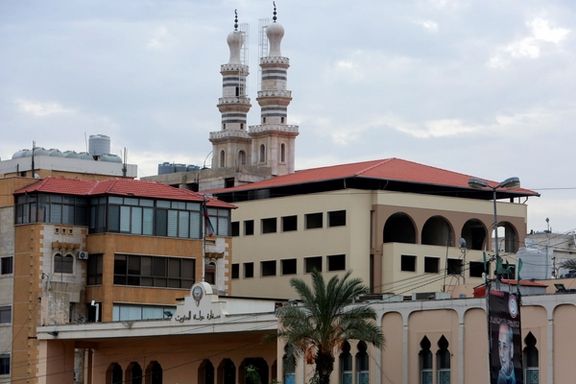
The United States Embassy in Kuwait has issued a security alert in response to threats made by the pro-Iran militant group Alwiyat al-Waad al-Haq (AWH).
AWH is considered to be affiliated with the quasi-military organization Asa'ib Ahl al-Haq, which is under the control of the Quds Force of the Islamic Revolutionary Guard Corps.
The group, in its fifth threat announcement since 2021, has deemed American bases in Kuwait and the United Arab Emirates as legitimate targets.
A statement from the embassy confirmed the threats and said all activity was being downgraded to "essential" only.
"The embassy is aware of threats made on social media by Alwiyat al-Waad al-Haq, a militia group in Iraq, against US military bases in Kuwait," it said. "As a result, the US Embassy in Kuwait is limiting its activity on US military bases to essential and official events only. US citizens are advised to remain alert."
AWH cited their actions as retaliation for what they described as "crimes of the Zionist entity and America," as well as in honor of the "martyrs of beloved Palestine," amid the Hamas-Israel conflict which broke out on October 7. Thousands of militia from Iran-backed Hamas invaded Israel's borders, killing over 1,500 and taking at least 220 hostages, including babies and elderly men and women. Israel has responded with a heavy air bombardment and vowed to continue until Hamas is completely defeated.
According to the Washington Institute for Near East Policy, in January 2021, AWH claimed responsibility for a drone attack on a royal palace in Riyadh. In February 2022, the group also claimed responsibility for four drone attacks in the United Arab Emirates, with one of the drones targeting the Burj Khalifa in Dubai and being intercepted.
Historically, AWH has primarily focused its attacks on Saudi Arabia, particularly due to its involvement in the conflict with Iran-backed Houthi rebels in Yemen.